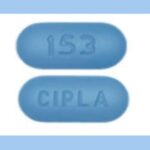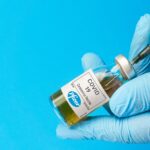How Long After Taking Valtrex Are You Contagious?

Being contagious refers to the ability of a virus to be transmitted from one person (or host) to another. Infectious diseases that spread from person to person are said to be contagious.
Viral infections are contagious for varying periods of time depending on the virus. An incubation period refers to the time between exposure to a virus (or other pathogens) and the emergence of symptoms. The contagious period of a virus is not necessarily the same as the incubation period.
What is Valtrex?
Valtrex is a brand of valacyclovir a prescription drug used to treat viral infections caused by a group of viruses called herpes simplex viruses. These infections include oral and genital herpes, shingles, and chickenpox. Valtrex belongs to a class of drugs called antiviral drugs. A class of drugs is a group of medications that work in a similar way.
Valtrex is used to treat the following conditions:
Oral herpes: These are small, painful sores that you can get in or around your mouth. Cold sores can be spread by kissing or other physical contacts with the infected area of the skin.
Genital herpes: This is a sexually transmitted disease. This means it’s spread through sexual contact. Symptoms include small, painful blisters on the genital area. You can spread genital herpes to your sexual partner even when you don’t have any symptoms. This drug is used to treat or prevent flare-ups of genital herpes in people with normal immune systems, or in people with HIV.
Shingles: This is caused by the same virus that causes chickenpox (varicella-zoster). Symptoms of shingles include small, painful blisters that appear on the skin. Shingles can occur in people who have already had chickenpox. It can also spread to people who have not had chickenpox before through contact with the infected skin.
Chickenpox: This causes an itchy rash of small, red bumps that can look like pimples or insect bites. The rash can spread almost anywhere on the body. Chickenpox can also cause flu-like symptoms, such as fever or tiredness. This drug is used to treat chickenpox in children ages 2 to 18 years who have a normal immune system.
How should I take Valtrex?
Valtrex comes as a tablet to take by mouth. It is usually taken every 8 hours (three times a day) for 7 days to treat shingles. To treat genital herpes, it is usually taken twice a day for 5 days. Follow the directions on your prescription label carefully, and ask your doctor or pharmacist to explain any part you do not understand. Take Valtrex exactly as directed. Do not take more or less of it or take it more often than prescribed by your doctor. Use this medication as soon as possible after symptoms appear.
Continue to take Valtrex even if you feel well. Do not stop taking Valtrex without talking to your doctor.
How long after taking Valtrex are you contagious?
For most initial herpes outbreaks and cases of recurring herpes, Valtrex takes effect very quickly and provides some level of relief in as little as two to three days. Generally, the sooner you take Valtrex after noticing symptoms, the faster it will be to provide relief.
The herpes virus spreads in your body by creating more of its cells. Valtrex works by making it harder for the herpes virus to multiply (make more cells) in your body.
Unfortunately, you can spread the virus even when you don’t have any symptoms or a sore, though you’re usually most contagious when you have them.
For example, if you are using Valtrex to treat shingles, you are contagious until the last blister has scabbed over. This will usually occur after about 10 to 14 days (two weeks).
This drug does not cure herpes infections. The herpes virus may still live in your body after treatment. This means the infection may occur again at a later time even after the symptoms of the first infection are gone. However, this drug can help prevent such a re-infection at a later time.
What are the possible side effects of taking Valtrex?
Get emergency medical help if you have signs of an allergic reaction to Valtrex: hives; difficult breathing; swelling of your face, lips, tongue, or throat.
Call your doctor at once if you have:
• confusion, aggression or you feel shaky or unsteady;
• hallucinations (seeing or hearing things that are not real);
• problems with speech;
• a seizure (convulsions); or
• kidney problems–little or no urination, painful or difficult urination, swelling in your feet or ankles, feeling tired or short of breath.
Stop taking Valtrex and call your doctor right away if you have any of the following signs of a serious side effect that can harm red blood cells:
• fever, pale skin;
• unusual bleeding (nosebleeds, bleeding gums);
• red or pink urine, little or no urination;
• red spots on the skin (not related to herpes or chickenpox);
• feeling weak or tired;
• stomach pain, bloody diarrhea, vomiting; or
• swelling in your face, hands, or feet.
Side effects may be more likely in adults who are 65 or older.
Common Valtrex side effects may include:
• nausea, stomach pain; or
• headache.
This is not a complete list of side effects and others may occur. Call your doctor for medical advice about side effects. You may report side effects to FDA at 1-800-FDA-1088.





